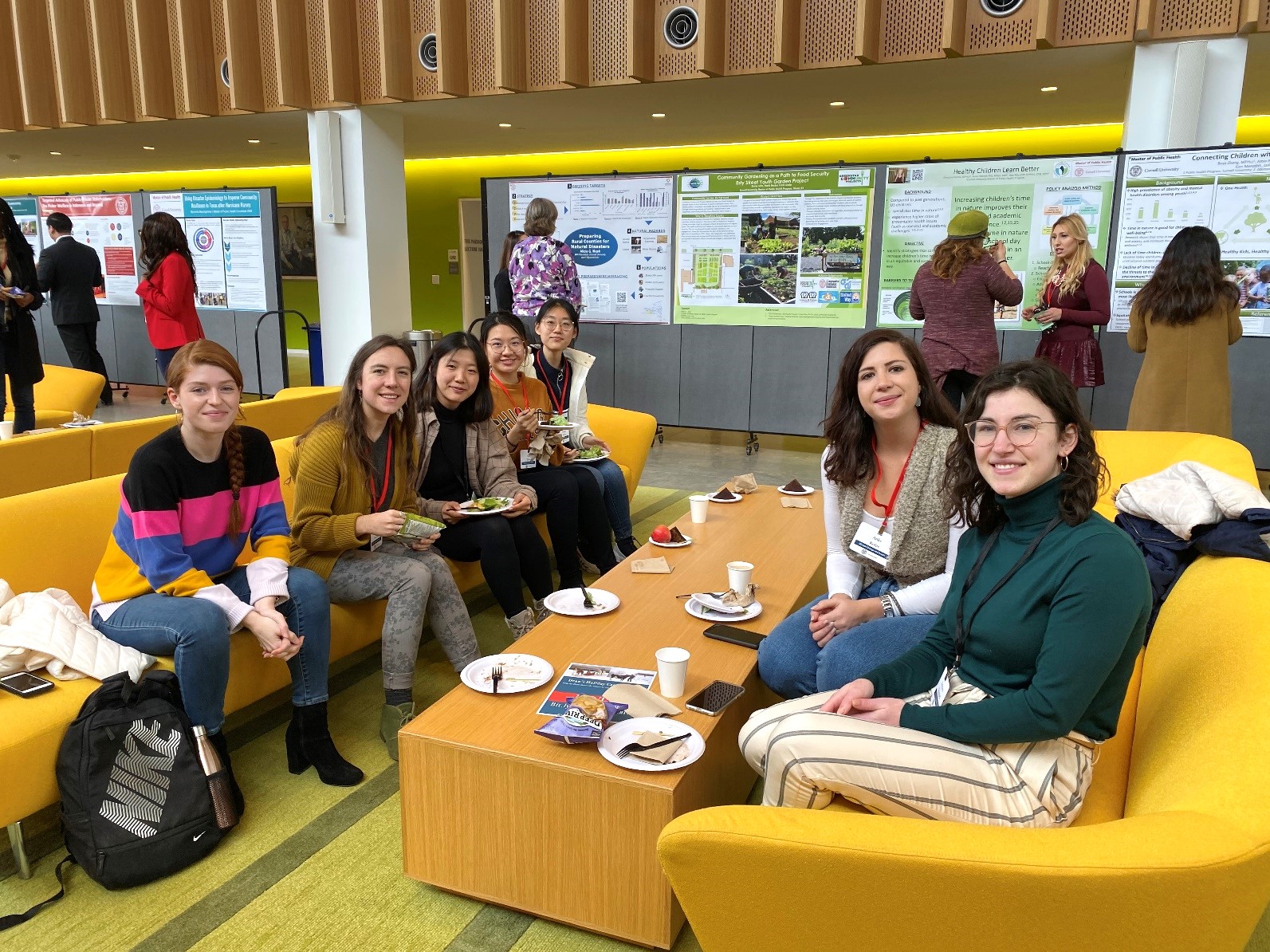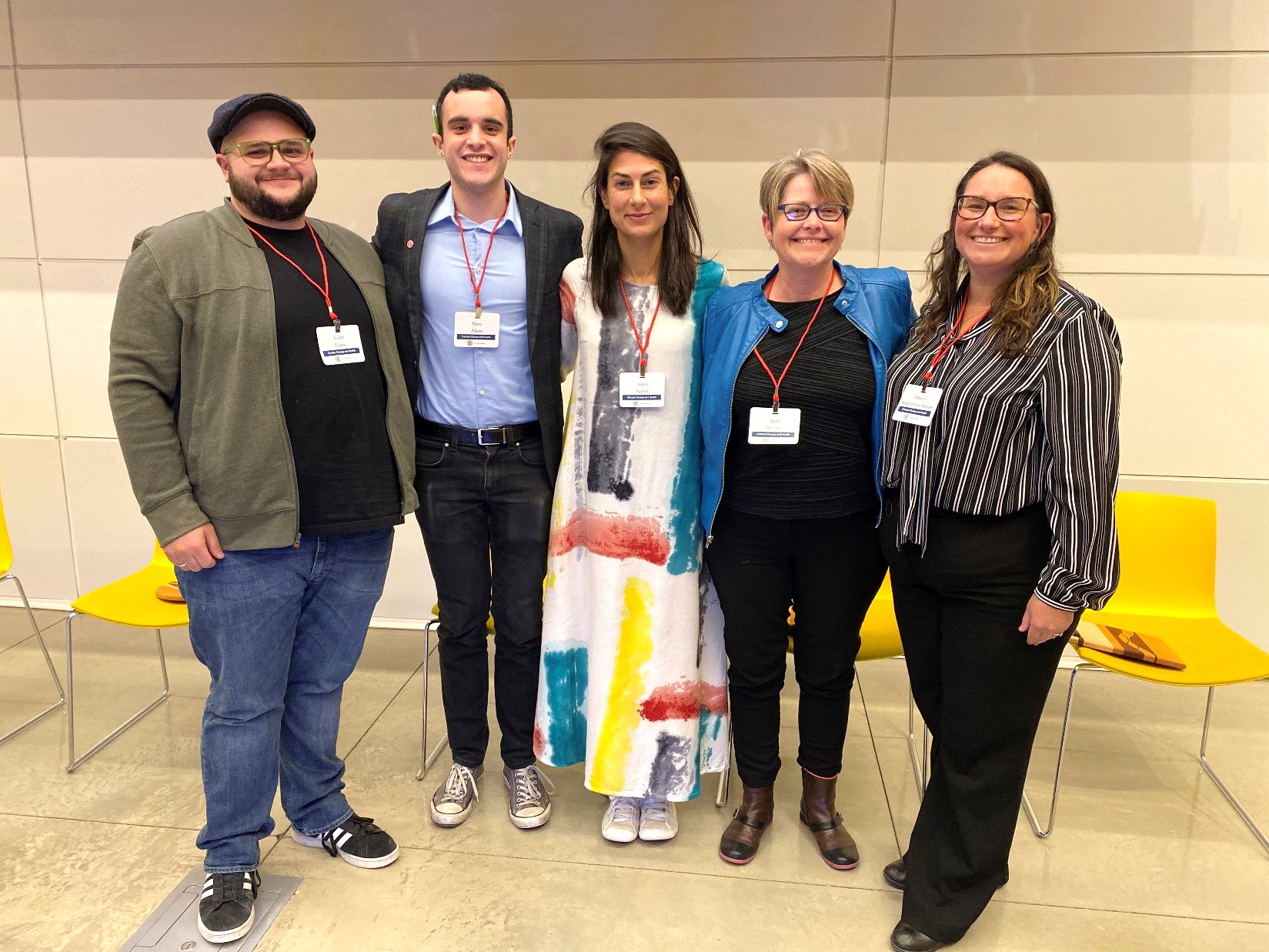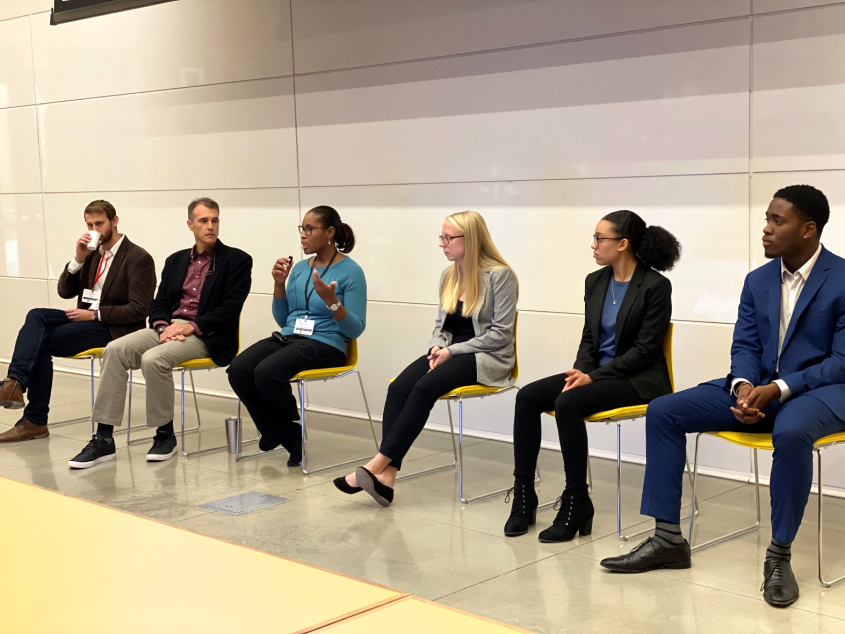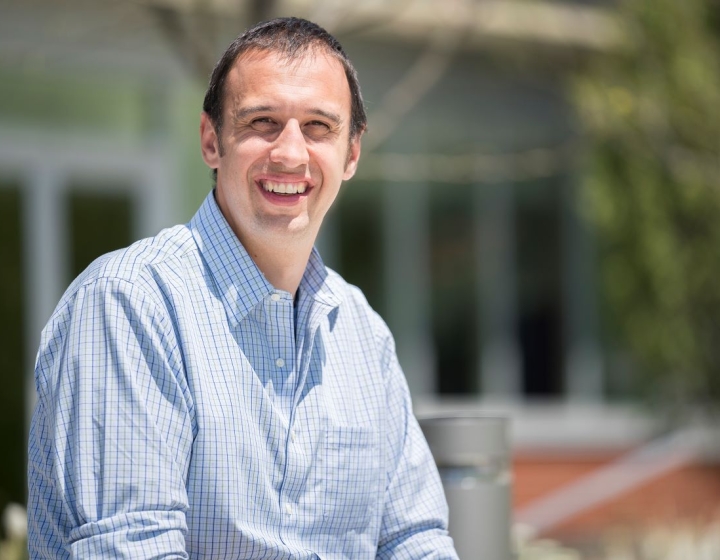College M.P.H. program hosts climate change and health symposium
“To have healthy people, we must have a healthy planet.” These words from Dr. Alexaner Travis, director of Cornell’s Master of Public Health (M.P.H.) Program, opened the symposium “Climate change and health: A call to action” Nov. 15. Spurred by estimates suggesting we have only 10 years left to prevent irreversible damage to the planet, 120 people gathered at the Cornell University College of Veterinary Medicine to attend the event, which featured two interdisciplinary panels of speakers representing the diversity and experience necessary to address the inextricable relationship between climate change and health.
The morning session focused on key challenges faced by populations particularly impacted by climate change. Three Cornell undergraduate student presented their finding that only 28 percent of health facilities in Sub-Saharan Africa have consistent and reliable access to electricity, leaving many patients literally in the dark, and at times without access to life-saving technologies that rely on power.
M.P.H. lecturer Dr. Lorraine Francis addressed the vulnerability of the 50 million people living on small island developing states (SIDS), which are isolated, prone to natural disasters and at risk of disappearing due to rising sea levels. During her talk, she highlighted some of the infrastructural investments SIDS have made to mitigate the impact of climate change.
During lunch, attendees could review scientific posters displaying research conducted by second-year M.P.H. students. Poster topics ranged from the effects of fish biodiversity on fishery sustainability, to using disaster epidemiology to improve community resilience following a hurricane, to changing the landscape of healthcare delivery using a harm reduction model.

The afternoon panel focused on ways communities can take action to raise awareness and hold political representatives accountable for the growing effects of climate change on health. The first panelist, award-winning journalist and filmmaker Anjali Nayar, presented her app TIMBY (This Is My Backyard) which is used to include indigenous and community voices in the global narrative of climate change. The app works by allowing people to securely document and store local data and anecdotal evidence of climate change and its impacts, thereby changing the conversation from whether or not something occurred, to what can be done about it.
Another panelist, associate professor of performing and media arts Dr. Sara Warner, creates community-based plays on climate change. After collecting stories from local community members on how their lives have been impacted by climate change, Warner helped actors bring these stories to life on the stage, culminating in the play The Next Storm, which is playing at the Kiplinger Theater in the Schwartz Center for the Performing Arts through Nov. 23.

At the end of the afternoon session, panelists were asked to provide one takeaway message for those working to combat climate change and its impacts on health. Their advice was to talk to someone everyday about climate change, listen to the young people, talk to those you disagree with and listen to their concerns and believe both that you can make a difference and that you have to try.
By Zoe Wakoff






